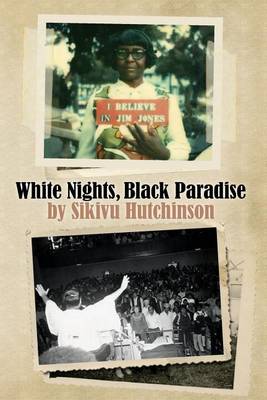
layawaydragon
Written on Oct 4, 2016
The drive from Modesto to Livermore was six degrees of cow dung, a deep rich funk for each rest stop.
White Nights, Black Paradise starts with Taryn and Hy on their way to California. It jumps around from time and place with each chapter, the title being who, where, and when. While I’d definitely say it’s mostly about Taryn, Hy, and Ida, there’s a smattering of other perspectives filling in the story including Jim Jones himself as a kid. Each one has its own distinctive voice that I could hear in my head. There was no trouble remembering who was who or telling them apart.
If my cart was full with the better cuts of meat, I was mistaken for a maid.
Throughout it all, the rise and fall, the center is black women. How Jim Jones recruited them, used them, exploited their causes and culture to place them on the bottom rung again. How society, especially white women, treated them. Every angle, problem, with housing, medical care, church, jobs, careers, and children, is examined from these women’s point of view.
They got their people out to rally against all those thug police murderers in the East Bay right before we moved here.
It’s chillingly clear how easy it was to believe in the causes and ideals of the People’s Temple. In the beginning, I kept nodding along thinking “YES!” But the internal hierarchy, the execution made it all a lie and the downward spiral visible. The descent into cult madness is vivid and understandable.
White Nights, Black Paradise is unforgettable. I had to read it slowly to digest and contemplate along the way. It will hurt, disturb, and make you think. I can’t say it was enjoyable, the struggles and pain of black women isn’t a romping good time. It’s enlightening, both a tribute and thesis. A testament to black woman power in all forms and shades. An indictment of white culture, white feminism, media, education, appropriation and injustice.
There's a monster at the end of this book, Grover says, as the patrols start up outside.
Everyone needs to read this. This is the kind of book that should be taught in a curriculum. A must-read for intersectional feminists, especially white women trying to be allies.
Sikivu Hutchinson is amazing. I first heard of her online as I coming to grips with being an atheist and all that entails. She's changed my life once again. If you don't follow her or read her work, you should.
